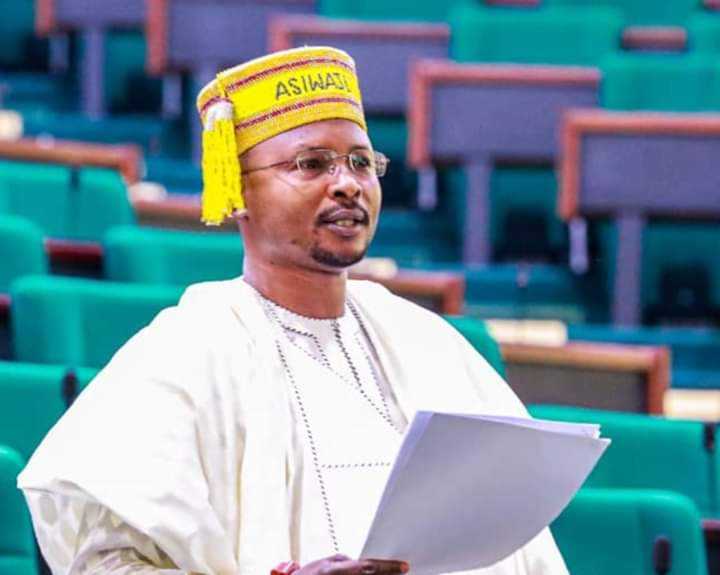Paragraph 1: The Predicted Demise of Nigeria’s Opposition Coalition
Leke Abejide, a member of the House of Representatives representing Yagba East/Yagba West/Mopamuro, has forecasted the imminent collapse of Nigeria’s opposition coalition. Abejide, speaking on Channels Television’s The Morning Brief, attributed the coalition’s anticipated downfall to its dismal performance in the August 16 by-elections, where it failed to secure a single seat. He confidently asserted that the alliance would completely disintegrate by September, emphasizing his role as the “landlord” of the African Democratic Congress (ADC), the party adopted by the coalition. Abejide claimed to have single-handedly elevated the ADC to its current prominence, suggesting the coalition’s leaders were attempting to “hijack” his party.
Paragraph 2: Abejide’s Claim to ADC Leadership and Coalition’s Lack of Party Roots
Abejide emphasized his long-standing commitment to the ADC, contrasting his loyalty with the coalition members’ recent association with the party. He highlighted his consistent use of the ADC platform for his electoral contests, successfully sponsoring other candidates for National and State Assembly positions. He argued that none of the coalition’s prominent figures, including former Vice President Atiku Abubakar and former Anambra State Governor Peter Obi, were card-carrying members of the ADC prior to its adoption as the coalition’s platform. While acknowledging former Senate President David Mark and former Osun State Governor Rauf Aregbesola’s past membership in the ADC, he downplayed their influence, asserting they held no leadership positions within the party structure.
Paragraph 3: Formation and Composition of the Coalition
The coalition, formed in July 2025, selected the ADC as its political vehicle for the 2027 general elections. David Mark and Rauf Aregbesola were appointed as the interim chairman and national secretary of the ADC, respectively. The coalition boasted a diverse membership comprising prominent political figures, including former Kaduna State Governor Malam Nasir El-Rufai, former Rivers State Governor Rotimi Amaechi, former Senator Dino Melaye, former Minister of Youth and Sports Solomon Dalong, former Benue Governor Senator Gabriel Suswam, and Dele Momodu. Other notable members included Senator Ireti Kingibe of the Labour Party, former Deputy Speaker of the House of Representatives Emeka Ihedioha, and former Chief of Air Staff Air Marshal Sadique Abubakar (retd.). This diverse group aimed to challenge the ruling All Progressives Congress (APC) and President Bola Tinubu’s anticipated second-term bid.
Paragraph 4: Abejide’s Criticism of the Coalition’s Motives and Strategy
Abejide’s pronouncements revealed his deep-seated resentment towards the coalition’s adoption of the ADC. He portrayed the coalition’s move as an opportunistic takeover, accusing its leaders of exploiting the ADC for their political ambitions without genuine commitment to the party’s ideals. He questioned the coalition’s sustainability, arguing that its lack of organic roots within the ADC would inevitably lead to its fragmentation. His “landlord” analogy underscored his perceived ownership of the party and his defiance against what he considered an intrusion by external forces.
Paragraph 5: The Coalition’s By-Election Performance and Implications
The coalition’s failure to win any seats in the August 16 by-elections provided credence to Abejide’s predictions of its impending collapse. The by-election results served as an early indicator of the coalition’s weaknesses and its struggle to gain traction with the electorate. The poor performance likely exacerbated internal tensions and raised doubts about the coalition’s viability as a cohesive political force. Abejide seized upon this setback as confirmation of his assessment, suggesting that the by-elections marked the beginning of the end for the alliance.
Paragraph 6: The Ruling Party’s Response and the Future of the Opposition
The ruling All Progressives Congress (APC) expressed confidence that any coalition formed to oppose President Tinubu’s second-term bid would ultimately fail. The APC’s dismissive stance reflected its assessment of the opposition’s fragmented nature and its belief in Tinubu’s enduring popularity. The future of the opposition remained uncertain, with Abejide’s predictions adding to the existing challenges. The coalition’s ability to overcome internal divisions, build a strong electoral base, and present a united front against the ruling party remained a significant question mark hanging over the Nigerian political landscape.


